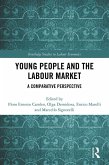Skills are frequently in the news and in the public eye in every country. Stories highlight concerns about education and literacy standards, grades, learning by rote, and university students being unprepared for work, as well as debates surrounding internships and apprenticeships, and social exclusion through skills policy. The recent financial crisis has forced education and training to take a back seat, and has caused an increase in youth unemployment. Skill and skilled work are widely considered important for promoting both prosperity and social justice. But how do we define skill? Skills and Skilled Work brings together multiple perspectives- economics, sociology, management, psychology, and political science- to present an original framework for understanding skills, skilled work, and surrounding policies. Focussing on common themes across countries, it establishes the concept and measurement of skill, and investigates the role of employers, workers, and other social actors. It considers a variety of skill problems and how a social response from the government can be understood. Based on the findings of economics, management science, and theories of social determination, it develops a rationale for social intervention beyond market failure. This book weighs up both the prospects and the limitations of what can be achieved for societies with a better emphasis on skills and skilled work, and it promotes the study of skill in modern economies as a distinct sub-field.
Dieser Download kann aus rechtlichen Gründen nur mit Rechnungsadresse in A, B, BG, CY, CZ, D, DK, EW, E, FIN, F, GR, HR, H, IRL, I, LT, L, LR, M, NL, PL, P, R, S, SLO, SK ausgeliefert werden.









